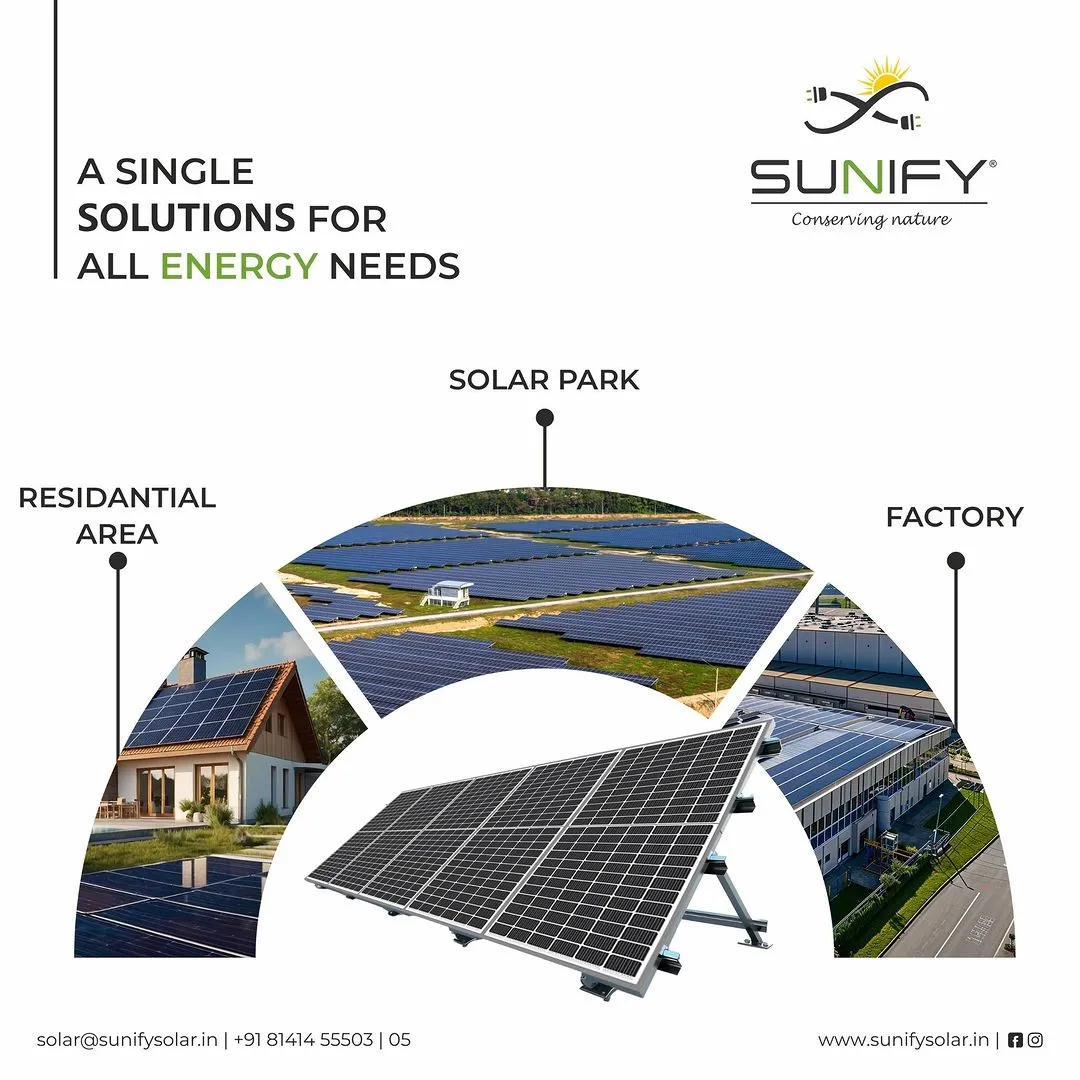
Connect With Our Team
With the world's leading transition to more sustainable sources of energy, solar energy presents itself as one of the stalwart contenders in this fight against climate change. Governments worldwide take different ranges of solar energy policies for developing phases of this sector, tend to pressing environmental concerns, and assure the need for security within energy supplies. This guide is tailored to enlighten you regarding solar energy policies, their importance to you, and impact on customers and the energy market.
What Are Solar Energy Policies?
Solar energy policies refer to governmental regulations and incentives that promote the development and use of solar power in a country or region. Large aspects of these policies differ widely but generally include such as:

-
Incentives & Subsidies: These help bring down the up-front costs that are associated with installing solar, therefore making it affordable for people or businesses.
-
Net Metering: A system whereby one can sell his or her excess electricity back to the grid. It helps in having an income or substitute electricity bills by compensating for solar energy systems.
-
Renewable Energy Standards: Requirements that utilities obtain a certain percentage of their energy supply from renewable sources. Solar power is included in these. These standards drive demand for solar energy and support the growth of the industry.
-
Feed-in Tariffs: Long-term contracts guaranteeing a fixed price rate for electricity generated by solar panels. On the other hand, FiTs give a stable income to the producers of solar energy, motivating investment in the solar technologies.
-
Power Purchase Agreements: It is the contract between the solar energy providers and the consumers of solar power at a fixed rate. PPAs can reduce upfront costs by deferring them over some time.
Latest Government Policies for Solar Energy in India
1. The Jawaharlal Nehru National Solar Mission (JNNSM)
2. Solar Park Scheme
3. PM-KUSUM Scheme
4. Production Linked Incentive (PLI) Scheme for Solar Modules
5. State Solar Policies
6. A Rooftop solar scheme / PM Surya Ghar Muft Bijli Yojana
Latest Update for Solar Scheme: Budget 2024 saw the Finance Minister announce that more than 1.28 crore registrations had been completed under the PM Surya Ghar Muft Bijli Yojana. The government is committed to taking all necessary measures to meet its goal of installing rooftop solar panels in 1 crore homes as soon as possible.
1. The Jawaharlal Nehru National Solar Mission (JNNSM):
The Jawaharlal Nehru National Solar Mission, launched in January 2010, is the center of India's policy on solar energy. It seeks to make solar power an integral part of the country's energy mix. Ambitious targets set for solar capacity include:
-
Installed Capacity Targets: The mission under NSM targeted an installed power generating capacity of solar power of 20 GW by the year 2022. The JNNSM was launched in January 2010, and the mission has been revised two times since then. The current target of this mission is 100 GW of solar PV by 2022.
-
Promotion of Solar Technologies: JNNSM supports the development of isolation PV technology and solar thermal systems to develop a wide range of solar energy technologies.
2. Solar Park Scheme:
The Ministry of New & Renewable Energy launched the scheme for Development of Solar Parks and Ultra Mega Solar Power Projects on December 12, 2014, with a target to set up 25 solar parks with a capacity of 20,000 MW in five years beginning from 2014-15.
The target capacity was increased to 40,000 MW on 21st March, 2017. It conceptualizes the entire support infrastructure, from land to clearances, a transmission system, water access road, etc., for setting up solar parks in India. Individual solar parks should have at least 500 MW capacity, but smaller parks also can be considered in hilly regions or places with limited non-agricultural land.
These parks may be developed at the state level by the state agencies/ CPSUs or Private entrepreneur(s) which will be termed as Solar Power Park Developers. The Ministry provides Central Financial Assistance in the form of a CFA for DPRs and, subsequently, up to Rs 20 lakh per MW or 30% of the project cost for achieving project milestones.
3. PM-KUSUM Scheme:
The Pradhan Mantri Kisan Urja Suraksha evam Utthaan Mahabhiyan Yojana, PM KUSUM Scheme, was started in March 2019 by the Ministry of New and Renewable Energy. It gives a subsidy to farmers to set up solar irrigation pumps. Farmers will get 60 percent subsidy on the installation of tube wells and pump sets and can get a 30 percent government loan for the same.
The main objectives of the PM-KUSUM Scheme are to equip farmers with state-of-the-art, environmentally friendly irrigation technology, and to reduce diesel consumption. The solar pumps provide efficient and more safe energy, generating more power than the diesel pump. The farmers can also sell additional electricity to the government, which will increase their income.
4. Production Linked Incentive (PLI) Scheme for Solar Modules:
On November 11, 2020, Cabinet approved a Production Linked Incentive Scheme for 10 key sectors as part of the steps under Atma Nirbhar Bharat. One of such sectors is "High Efficiency Solar PV Modules," under which the MNRE is the implementing agency. The scheme provides a financial outlay of ₹4,500 crore for Tranche-I.
The 'National Programme on High Efficiency Solar PV Modules' was launched on 28 April 2021, which aims at promoting domestic manufacturing of High Efficiency Solar PV Modules. PLI would be given based on sales for the purpose of helping India reduce its dependencies on imports in this sector of renewable energy technologies.
5. State Solar Policies
A number of Indian states have instituted their respective solar state policies, often complementary and supplementary to national initiatives. Usually, these policies encompass
-
Incentives and Subsidies: Some of the financial incentives, subsidies, and rebates provided by the states on installing solar panels over residential, commercial and industrial properties.
-
Net Metering: Many states have implemented net metering laws and regulations which allow consumers to sell excess solar power to the grid and get paid.
6. A Rooftop Solar Scheme / PM Surya Ghar Muft Bijli Yojana:
The Union Budget 2024 has also set an ambitious target for the 'PM Surya Ghar Muft Bijli Yojana,' a rooftop solar scheme announced by Finance Minister Sitharaman, to have solar panels installed in 1 crore households.
Launched on February 15, 2024, it would provide up to 300 units per month of free electricity in households. Under the scheme, the government gives subsidies that cover up to 40% of the installation costs and concessional bank loans that lower the financial burden.
The scheme is likely to benefit households in the saving of Rs. 15,000 to Rs. 18,000 crores on electricity bills annually and extra revenue through the sale of surplus power. It also aims at reducing the government's expenditure on electricity by about Rs. 75,000 crore per annum and promoting 'sustainable energy'.
Applications of Solar Energy
-
Residential
-
Commercial
-
Farms
-
Water Heating
-
Solar-Powered Transportation
-
Solar-Powered Lighting
-
Remote and Off-Grid Applications
-
Agricultural Solutions
Solar energy uses also range far and wide, with each sector driven by the advancement in technology and supportive policies. Some of the principal areas where solar energy is contributing significantly are:

-
Residential Solar Power: Installing solar panels on rooftops helps people generate electricity for their own use. Surpluses can be fed back into the grid through net metering, offsetting their electricity bills and returning an overall investment.
-
Commercial Solar Power: Increasingly, businesses are looking towards solar energy to decrease energy spend while improving green credentials. Solar panels can be fitted to commercial buildings, warehouses, and industrial units; in most cases, these systems are larger in size and enjoy economies of scale.
-
Solar Farms: Large utility-scale solar farms produce huge megawatts of electricity fed into the grid; hence, these installations are generally situated in high-sun radiance regions and normally contribute extensively to the energy mix of an area.
-
Solar Water Heating: Solar thermal systems usually warm up water with sunlight for residential and commercial uses. This application is very common in parts of the world that are very sunny and can save many electric or gas water heaters.
-
Solar-Powered Transportation: Many other forms of transport, from solar cars and buses to solar charging stations for electric vehicles, are being fitted with solar energy. This application helps in reducing the carbon footprint of transportation and supporting the transition to cleaner energy sources.
-
Solar-Powered Lighting: Solar-powered street lights and outdoor lighting systems use solar panels to charge batteries during the day for illuminating the nights in public areas, parks, and residential areas.
-
Remote and Off-Grid Applications: Solar energy is ideal for those remote or off-grid locations where electrical grid extension proves impracticable. This includes the provision of electricity for rural communities, disaster relief areas, and isolated facilities by solar power systems.
-
Agricultural Solar Solutions: Solar energy in agriculture finds its usage in areas like solar-powered irrigation systems and greenhouses. These solutions improve efficiency and sustainability in farming practices.
Conclusion
The understanding of policies on solar energy is, therefore, an important way through which the dynamic landscape of clean energy can be navigated. These policies do not only drive the growth of the solar industry but also contribute to a more resilient and sustainable energy future.
Solar energy assumes its important role in the world's turning movement to clean and renewable sources of energy due to the advantages associated with it, starting from environmental to social and economic. The dependent state is attaining its energy needs, cutting down carbon emissions, and stimulating economic growth in none other than India dependent largely on solar energy. The efficiency and availability of solar electricity will keep increasing with its advancing technology, hence placing it as one of the major players in the future energy mix.
Sunify Solar LLP has been part and parcel of this solar revolution. The company has several decades of experience in a variety of solar panels. World-class manufacturing and stringent quality controls set the highest benchmark in reliability and performance. Sustainability and innovation are the fundamental principles to which we are committed, as part of our continuous R&D investment supplying the best solar technology to customers. You are assured of more than just solar energy when you opt for Sunify Solar.
Recently Posted
Whatsapp Chatx
Hi! Click one of our representatives below to chat on WhatsApp or send us email to solar@sunifysolar.in

|
************** +91 81414 55503 |

We will love to hear from you!






